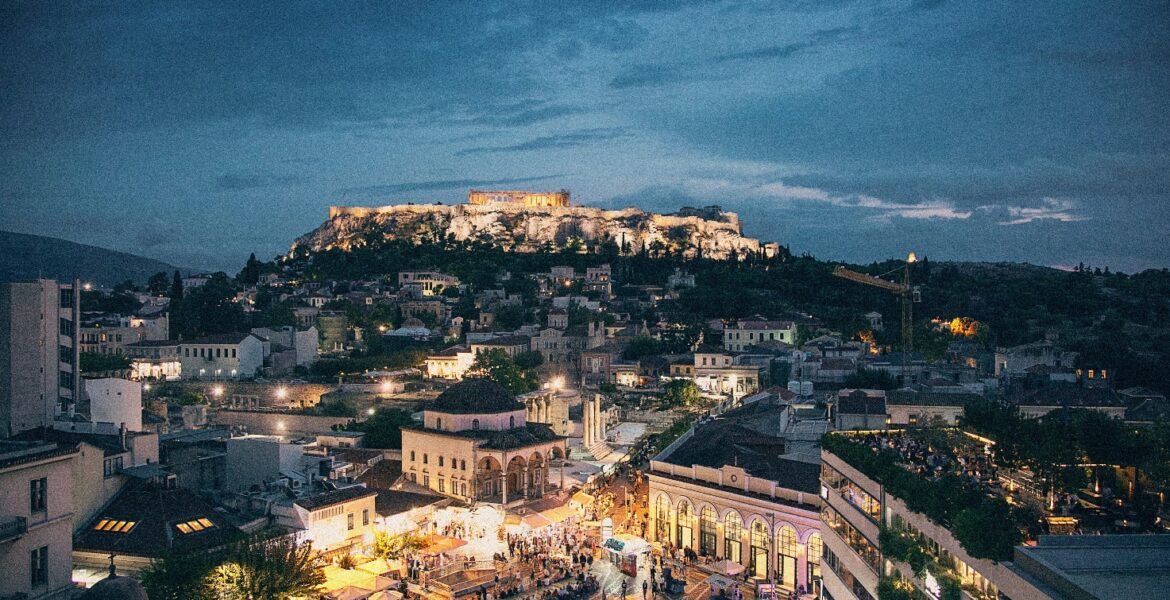The “European Capital of Culture” is an honourable title designated to a European city each year by the European Union. The honoured city keeps the title for a period of one year, during which it is given the opportunity to showcase its cultural life and development.
In the past, several European cities have ‘used’ their time as “Cultural Capitals” to completely transform, update and innovate their cultural image in the international arena and attract visitors from all over the world.
The European Capital of Culture awards started in 1985, at the initiative of the then Greek Minister of Culture, Melina Mercouri. The concept of the awards was conceived as a way of approaching European citizens from all countries of the EU and bringing them together, through educational, cultural, and entertaining events.

Up until 2004, the member states of the EU unanimously selected the most likely cities to become Capitals of Culture and host a series of cultural events, while the European Commission awarded a grant to the selected city each year. Since 2005 the EU institutions of the member states and cultural organizations are the ones that participate in the process of selecting the cities that will host the event, while the winner city receives the prize of 1.5 million Euros.
Greece leads the way, along with Italy, Spain, France and Belgium, by winning the title four times over the past 30 years, while Germany has won 3 awards, the UK has won 2 awards, and Cyprus was awarded in 2017 for the city of Paphos.
Here are the four Greek cities that were named European Capitals of Culture, and stood out for their rich history and cultural contribution to the world, among all other cities of Europe:
Athens, European Capital of Culture of 1985 (Αθήνα)
After Melina Mercouri visioned and inaugurated the institution of the European Capital of Culture, the committee of the institution, composed by representatives of all EU countries, declared Athens as the first European Cultural City on June 13th, 1985.
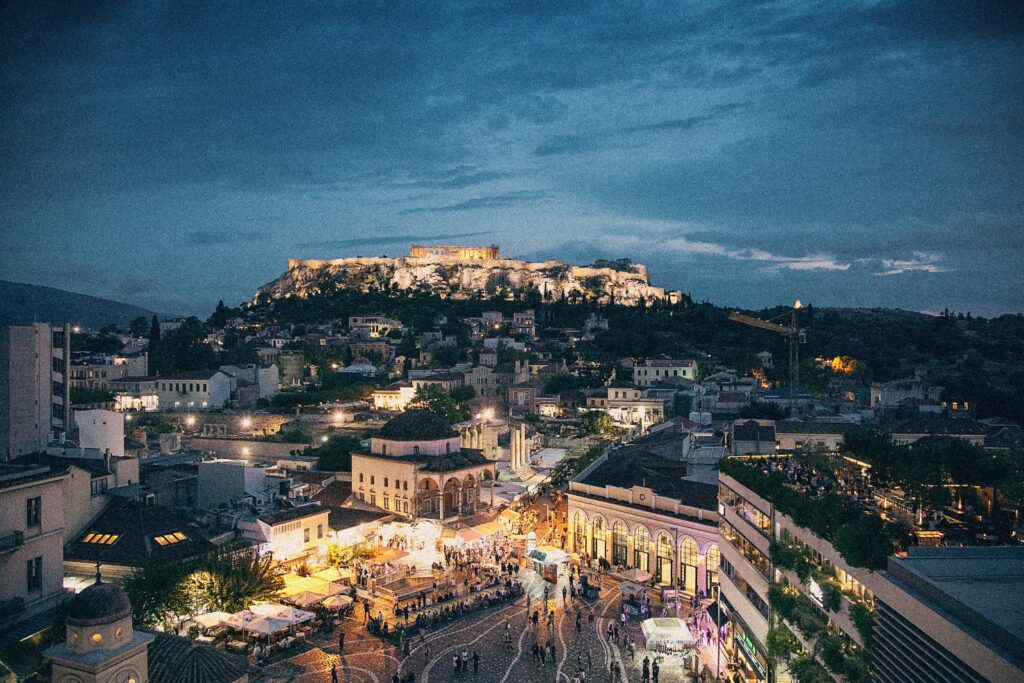
Since the Greek capital was the first ever city to hold the title, a large number of people, from various places around Europe, visited Greece and participated in the cultural events and exhibitions that Athens hosted during that year. Additionally, museums and institutions were built in 1985 to allow Athens to showcase its influential culture around the world, such as the Greek National Gallery, which was inaugurated by the President of France at the time, François Mitterrand. The Athenian events also included music, theatre, traditional dancing, and audio-visual screenings all around the capital.
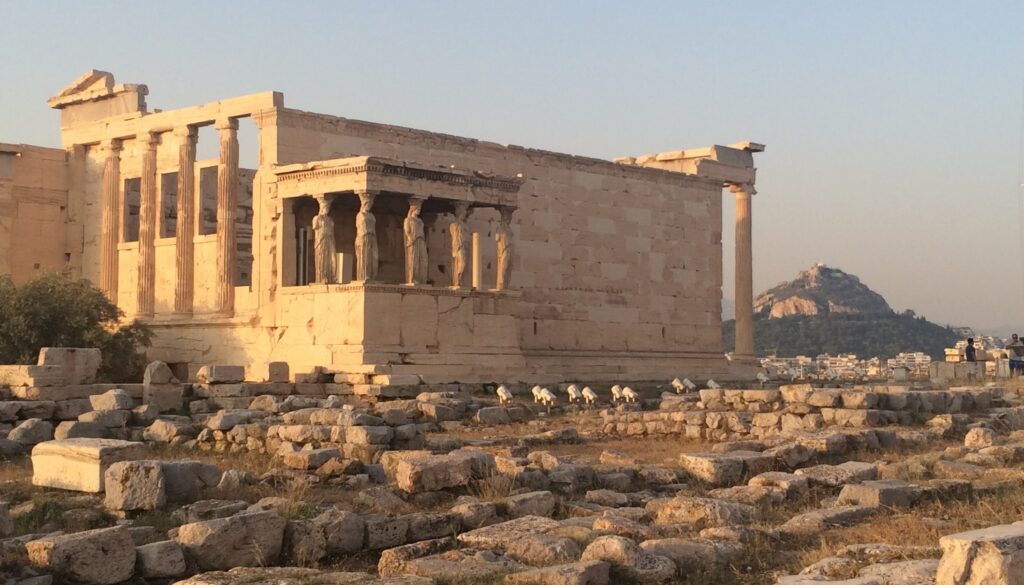
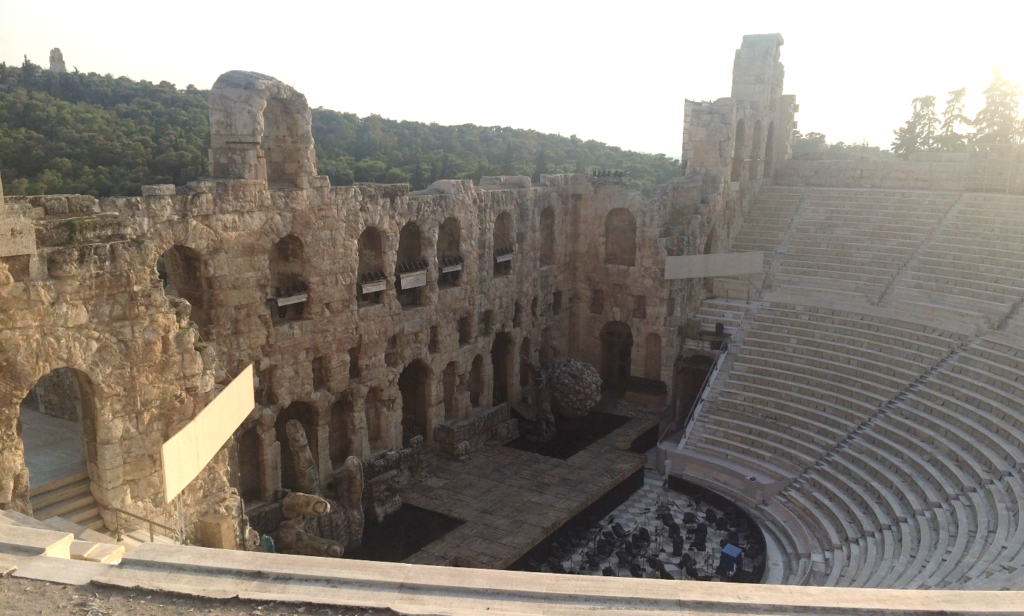
The beginning of the celebrations in Athens were kicked off on the hill of Acropolis in Athens, in front of the temple of Parthenon, next to the Herodion theatre and the Stoa of Attalos. The participants were Christos Sartzetakis (President of Democracy of Greece), Andreas Papandreou (Prime Minister of Greece), François Mitterrand (Prime Minister of France), Kostas Mitsotakis (Leader of the Opposition Party), Melina Mercouri, as well as the cabinet, foreign ministers of culture, diplomatic delegations and representatives of the Council of Europe.
The institution of the European Capital of Culture also highlighted the cultural heritage of Greece, mainly through the organization of relevant exhibitions around Europe and emphasized on the significant role that Greece has played in the formation of the European culture.
Thessaloniki, European Capital of Culture of 1997 (Θεσσαλονίκη)
The year 1997 was unique for the historic city of Thessaloniki, which had long been a cultural crossroads and bridge between Europe and the East, connecting people and cultures.
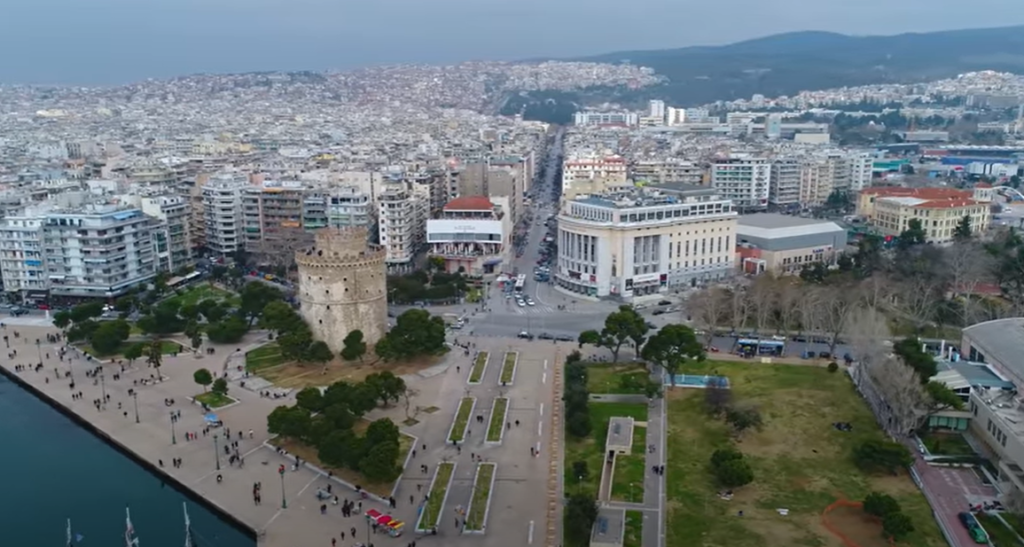 On New Year’s Eve in 1997, a large crowd of residents, along with important political figures of the country, went to the White Tower of Thessaloniki to welcome the new year and celebrate the Capital of Culture title that was awarded to their city, while music and lights were blasted around the city and fireworks covered up the sky of Thessaloniki.
On New Year’s Eve in 1997, a large crowd of residents, along with important political figures of the country, went to the White Tower of Thessaloniki to welcome the new year and celebrate the Capital of Culture title that was awarded to their city, while music and lights were blasted around the city and fireworks covered up the sky of Thessaloniki.
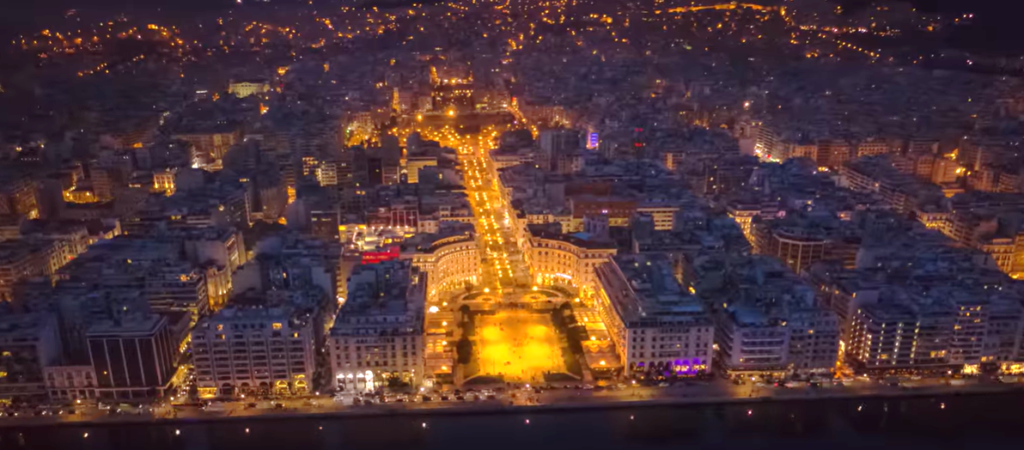
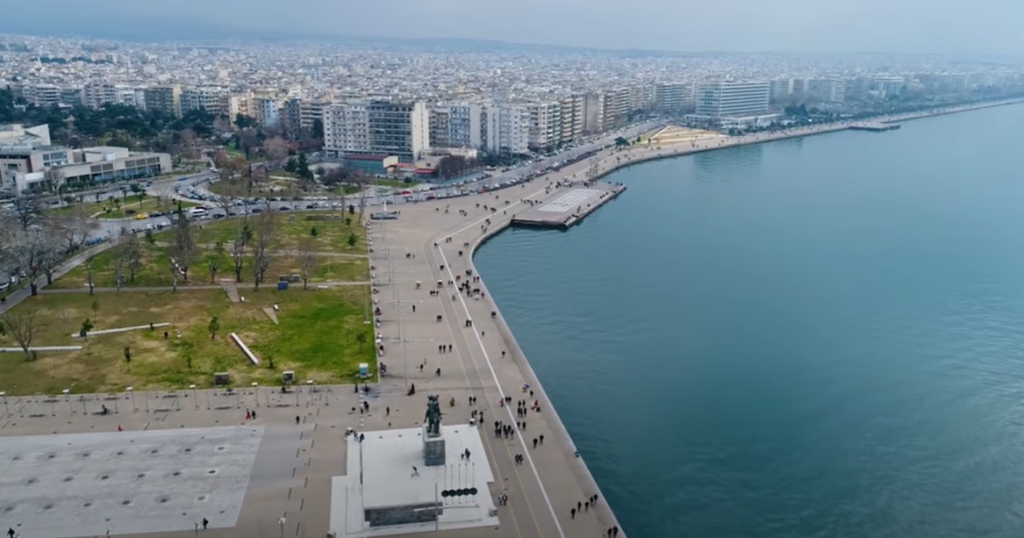
Residents participated to a large extent at the events hosted by the city and several historic events took place during that year, including the exhibition dedicated to the Greek Nobel Prize-winning poet Odysseas Elytis and the very important exhibition on the treasures of Mount Athos. Moreover, 265 more projects were built around the city in an attempt to innovate and modernize its image.
Patras, European Capital of Culture of 2006 (Πάτρα)
The awarding of the title of European Capital of Culture to the city of Patras in 2006 was an important opportunity for the development and modernization of the cultural and business sector of the city.
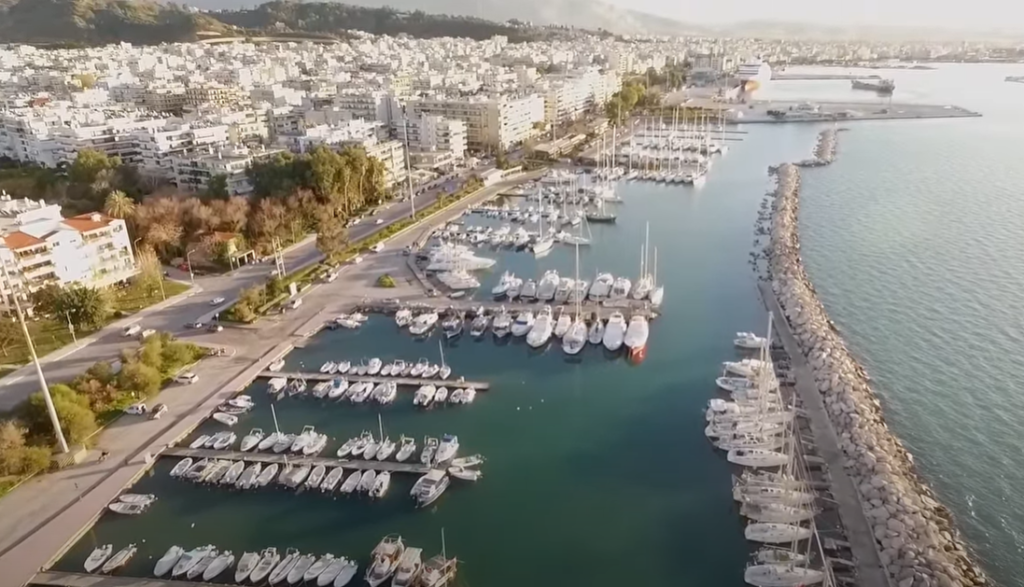
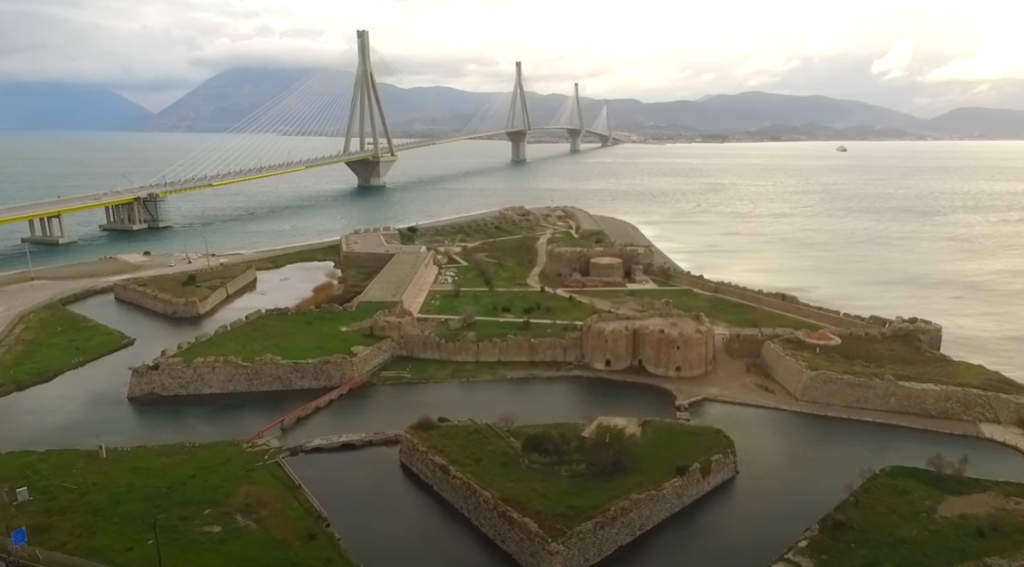
Unlike many other European cities that hosted the event, Patras added to its main exhibition programs cultural events about other European cities to showcase their beauty and did not just focus on Greek culture. The main goal of Patras was to achieve a ‘meeting’ of European citizens and to present the cultural diversity of each participating country by hosting artists from various European countries.
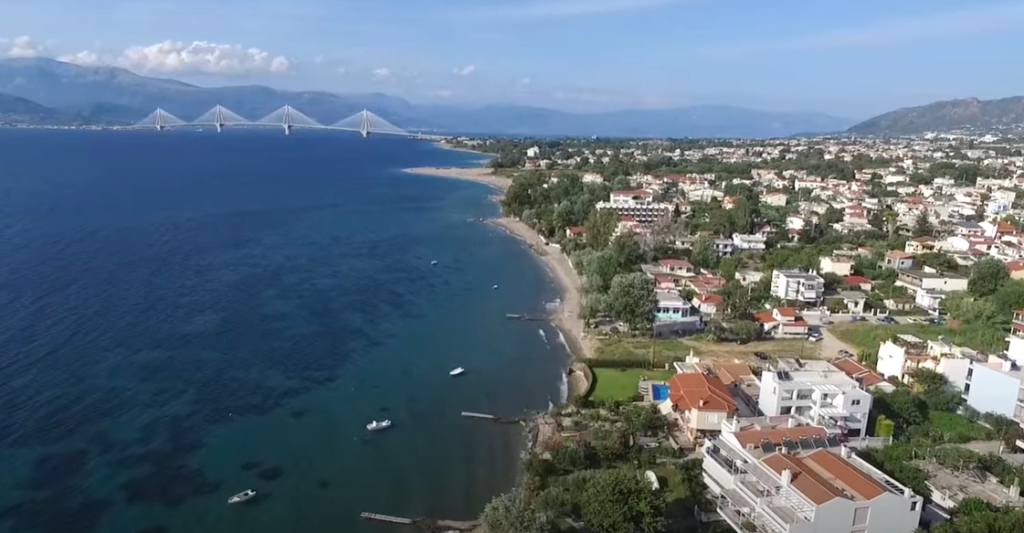
The main cultural program of the city officially started with the opening ceremony of the exhibition "Leonardo da Vinci: Inventor and Scientist", which was later hosted in other Greek cities. The completeness and quality of the cultural program enhanced the city's international reputation, while the voluntary interest on the part of the citizens of Patras was so great that it aroused the admiration of the whole of Europe.
Elefsina, European Capital of Culture of 2021 (Ελευσίνα)
A long-awaited and anticipated nomination and win for the European Cultural Capital award was given to the “mysterious” city of Elefsina for the year 2021-2022.
In total, 14 Greek cities claimed the prestigious award, including Kalamata and Rhodes (two favourites to win), as well as Tripoli, Ioannina, Delphi, Corfu, Messolonghi, Samos, and more.
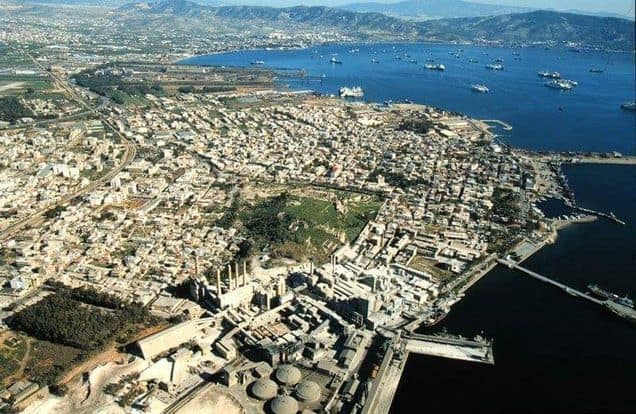
The events that are expected to take place in Elefsina in 2021 will pay tribute to the Aeschylia (named after Aeschylus, the father of drama and tragedy), one of the most important Greek theatre festivals. The most sacred ancient city of Greece and home to the famous Eleusinian Mysteries (a religious cult in Ancient Greece) will open its doors to people from all over the world, who want to experience the world of theatre.
Tibor Navracsics, European Commissioner for Education, Culture, Youth and Sports said that “in 2021, Greece will host the European Capital of Culture for the fourth time after Athens, Thessaloniki and Patras. Many cities competed for the title, which once again showed how popular this EU initiative is within cities and citizens. I congratulate Elefsina for the success and I look forward to seeing the city offering visitors from Europe and around the world the opportunity to get to know Greece and its cultural assets, but also to appreciate the cultural diversity of the European Union, as well as our common values - which are more urgent today than ever.”


The Capital of Culture initiative has now become one of the most ambitious and prestigious cultural events in Europe and is increasingly successful among Europeans. Every year, the awards have a growing cultural and socio-economic impact because of the large number of visitors that the winning cities attract, and the global attention they receive. Such events, that bring out the culture and history that each city carries within, remind us, in times like these, how important it is to come together and celebrate our cultures and uniqueness.

